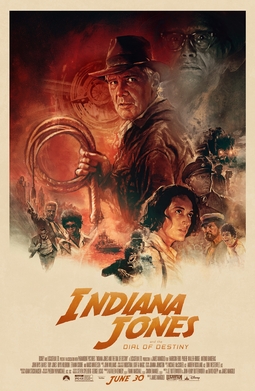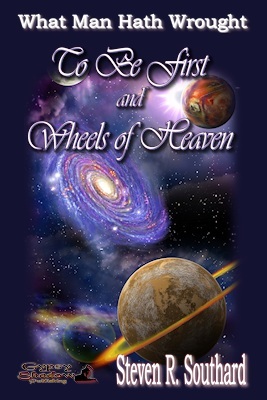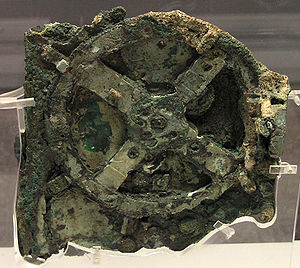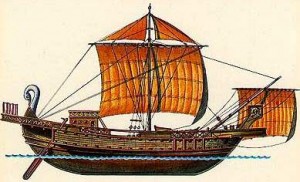The current movie, Indiana Jones and the Dial of Destiny portrays a retired archeology professor who comes across an artifact called the Archimedes Dial. You’re too late, Indiana Jones. I found it first.
The machine exists. And don’t call it the Archimedes Dial. Call it the Antikythera Mechanism. Note to scriptwriters: the machine couldn’t detect time fissures, but could predict future positions of the Moon, Mercury, Venus, Mars, Jupiter, and Saturn, as well as upcoming eclipses.
Sure, it’s possible that Archimedes, using the science of his era, stumbled on the secrets of time travel, something nobody has done in the twenty-two centuries since. Or, perhaps someone in Hellenistic Greece found a way to mechanize the laborious task of predicting planetary motions, a real time-saver for astrologers of the time. You tell me which is more likely.
When I say I found the machine before Indiana Jones, I’m referring to the fictional Antikythera Mechanism. (The real one’s in the National Archaeological Museum in Athens.) My story, Wheels of Heaven, involves a Roman astrologer who comes across the device. He’s delighted with how fast it performs calculations over which he would previously labor for hours. He provides horoscope readings for the crew of a ship, but encounters a sailor who doesn’t believe in astrology. My tale offers an explanation for how the machine ended up on the seabed off the coast of the island of Antikythera.
You’ll find Wheels of Heaven bundled with another story, To Be First, in a single ebook. I’d classify Wheels as ‘secret history’ as distinguished from alternate history. Secret history stories could have really happened, for all we know. In Wheels, I didn’t stray beyond contemporary technology, and nothing in the story would have changed history as we know it.
I don’t mean to disparage the Indiana Jones movie. I’ll see it at some point. But for readers anxious for a more probable story, more true to life, I offer Wheels of Heaven, by—
Poseidon’s Scribe




 It’s a fascinating machine, advanced well beyond what anyone gave the ancient Greeks credit for. Moreover, until x-ray tomography was conducted on the device in recent years, no one knew what it was for.
It’s a fascinating machine, advanced well beyond what anyone gave the ancient Greeks credit for. Moreover, until x-ray tomography was conducted on the device in recent years, no one knew what it was for. When research revealed the wreck to be a Roman merchant ship, I checked out what those ships were like. They differ from trireme warships in interesting ways. The carved neck and head of a swan which I describe in the story was actually a common feature of these ships.
When research revealed the wreck to be a Roman merchant ship, I checked out what those ships were like. They differ from trireme warships in interesting ways. The carved neck and head of a swan which I describe in the story was actually a common feature of these ships.